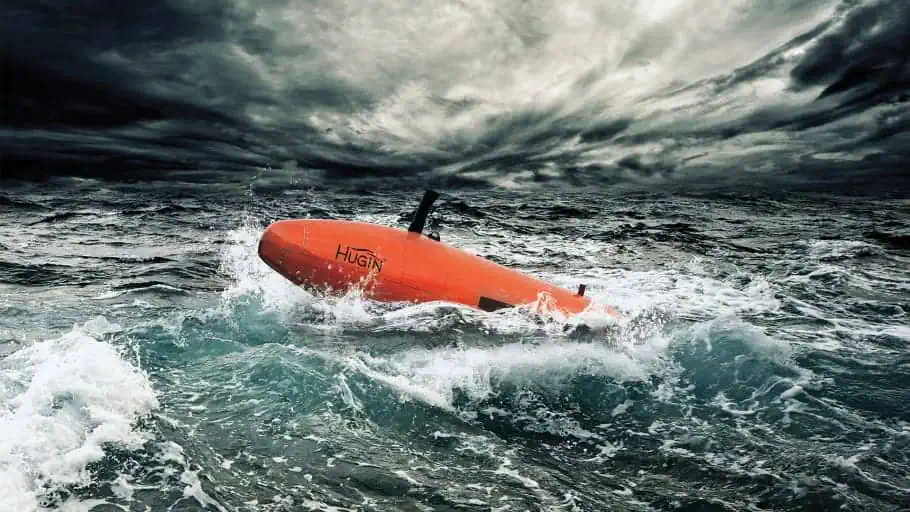Kongsberg Maritime is pleased to announce that Ocean Infinity has signed an order for six HUGIN Autonomous Underwater Vehicles (AUVs) rated to 3,000 metres depth. The vehicles are equipped with a geophysical sensor suite and the latest generation KONGSBERG batteries.
The new vehicles will be mobilised for global operations, enabled by Ocean Infinity’s remote operations infrastructure. The vehicles will integrate as part of the Armada fleet of uncrewed and optionally-crewed vessels and will augment the company’s existing AUVs, rated to 6,000 metres depth.
Dan Hook, CTO of Ocean Infinity, said: “Lessening the environmental impact of operations at sea is core to our business, and with an expanded fleet of robotics, we’ll have greater capacity to offer sustainable offshore data acquisition services. Using these AUVs as part of our robotic fleet, we’ll be supporting the growing renewables sector with remote data and inspection services.”
“This latest order from Ocean Infinity takes their fleet of HUGIN AUVs to more than 20, making them uniquely placed to deliver data acquisition services at an unmatched scale,” added Richard Mills, Vice President Marine Robotics Sales with Kongsberg Maritime. “They also include the introduction of some new capabilities enabling operators to interface more easily with third-party software and also control adaptive behaviours in response to data collected in-mission.”
Josh Broussard, Director of Sub-Surface Technology at Ocean Infinity, said: “These new AUVs include special software interfaces which will allow us to integrate our remote operations technology, mission planning and dive management software, along with a backseat driver allowing the vehicle to react to payload sensor output. Combined, these technologies will enable greater autonomy, resulting in smart and efficient data gathering.”












